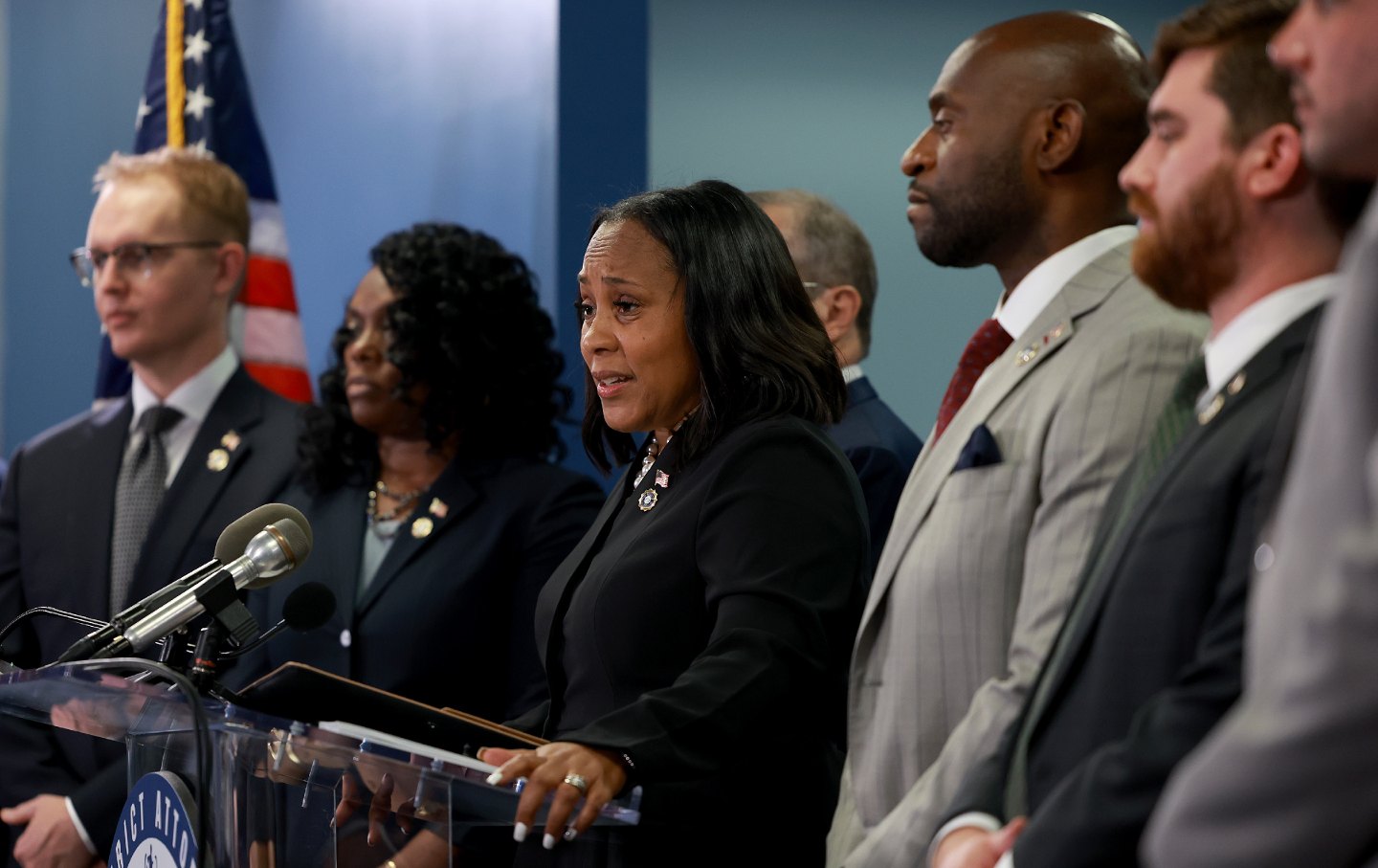On this episode of Start Making Sense, Harvard’s first woman president describes growing up in the Virginia elite, and the dean of UC Berkeley's law school analyzes the Georgia indictments.

Fulton County District Attorney Fani Willis announces the charges in the indictment of former president Donald Trump and his Republican allies over an alleged attempt to overturn the 2020 election results in the state…(Joe Raedle / Getty Images)
Here's where to find podcasts from The Nation. Political talk without the boring parts, featuring the writers, activists and artists who shape the news, from a progressive perspective.
Drew Faust grew up in Virginia in the ’50’s, in the segregated south, in a family that was part of the white elite—and went on to make “necessary trouble” as a college student and activist in the ’60’s. The first woman to serve as president of Harvard University, Faust comes on the Start Making Sense podcast to talk about her memoir, “Necessary Trouble: Growing up at Midcentury.”
Also on this episode: If it was a good strategy for Special Prosecutor Jack Smith to charge Trump with four felonies, is it also a good idea for Fulton County District Attorney Fani Willis to charge Trump and 18 other people with a total of 41 felonies? Erwin Chemerinsky, dean of the law school at UC Berkeley, is on the show to discuss.
Advertising Inquiries: https://redcircle.com/brands
Privacy & Opt-Out: https://redcircle.com/privacy
Drew Faust grew up in Virginia in the 1950s, in the segregated South, in a family that was part of the white elite—and went on to make “necessary trouble” as a college student and activist in the ’60s. The first woman to serve as president of Harvard University, Faust comes on the Start Making Sense podcast to talk about her memoir, Necessary Trouble: Growing up at Midcentury.
Also on this episode: If it was a good strategy for special prosecutor Jack Smith to charge Trump with four felonies, is it also a good idea for Fulton County District Attorney Fani Willis to charge Trump and 18 other people with a total of 41 felonies? Erwin Chemerinsky, dean of the law school at UC Berkeley, is on the show to discuss.
Here's where to find podcasts from The Nation. Political talk without the boring parts, featuring the writers, activists and artists who shape the news, from a progressive perspective.
Bernie Sanders and AOC are on their “fighting oligarchy” tour, and in Denver last weekend they had the biggest political event there since Obama in 2008. It was also the biggest rally of Bernie’s life–bigger than anything in his presidential campaigns. And the first big election of the year is underway in Wisconsin. John Nichols has our analysis.
Also: Elie Mystal, The Nation’s Justice Correspondent, talks about popular laws that are ruining America – starting with our voter registration requirements. But despite the obstacles and disappointments, he argues that it’s always necessary to vote. His new book is Bad Laws.
Advertising Inquiries: https://redcircle.com/brands
Privacy & Opt-Out: https://redcircle.com/privacy
Jon WienerTwitterJon Wiener is a contributing editor of The Nation and co-author (with Mike Davis) of Set the Night on Fire: L.A. in the Sixties.